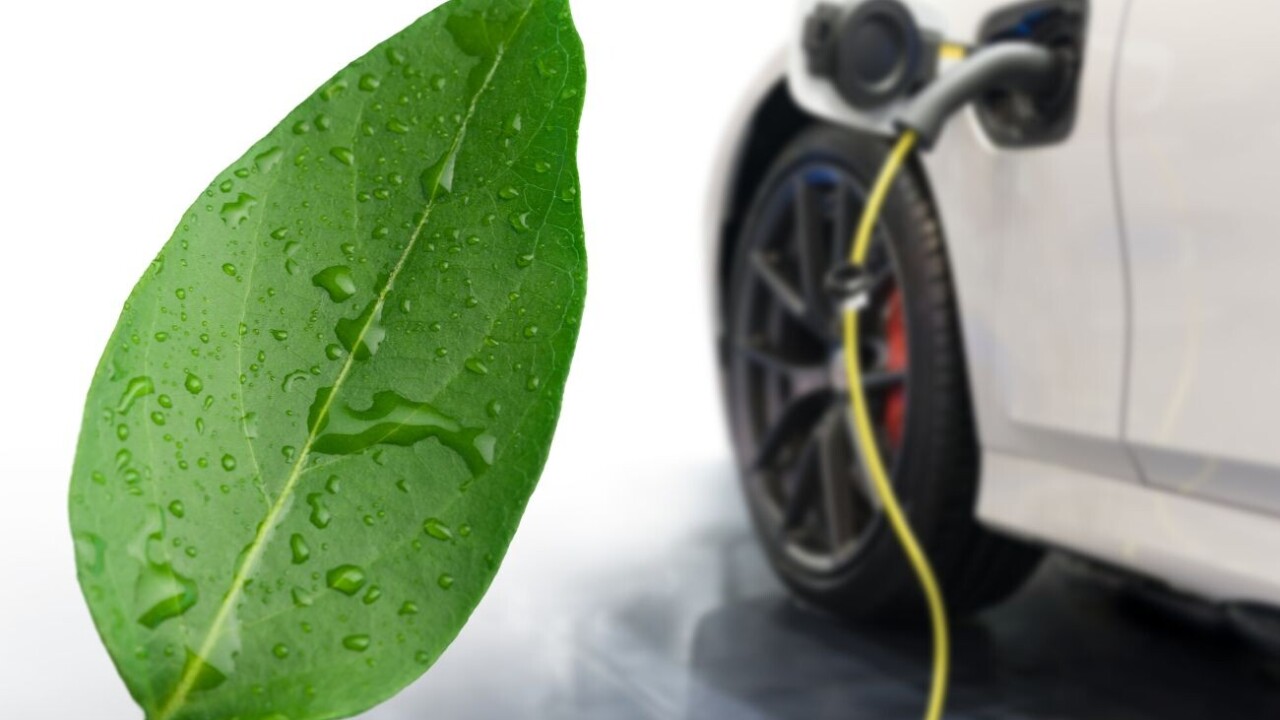
Researchers from the University of Cambridge have developed an ‘artificial leaf’ that uses sunlight to convert water and carbon dioxide into ethanol and propanol.
These so-called ‘drop-in’ fuels can directly power an internal combustion engine without any modifications, potentially offering a low-emissions alternative to gasoline.
Unlike fossil fuels, these solar fuels produce net-zero carbon emissions, said the researchers, and are entirely renewable. What’s more, unlike most bioethanol, they do not divert any agricultural land away from food production.
Researchers made the artificial leaf from multiple layers including copper, glass, silver, and graphite. The leaf contains light absorbers – similar to the molecules in plants that harvest sunlight – which are combined with a catalyst.
This catalyst, which is similar to chlorophyll, the catalyst for photosynthesis in a real leaf, is made from two elements — copper and palladium. In the presence of sunlight, the catalyst converts CO2 to ethanol and propanol, and the water into oxygen.

For years, the research team has been investigating ways to harness photosynthesis to produce sustainable fuels, but these artificial leaves have only been able to produce simple chemicals like syngas — a mixture of hydrogen and carbon monoxide that is used to produce fuels, pharmaceuticals, plastics, and fertilisers.
But this latest breakthrough has enabled scientists to produce clean ethanol and propanol without producing syngas at all. Eliminating this step makes the technology “more practical and scalable,” said the researchers.
While other scientists have been able to produce similar chemicals using electrical power, this is slated to be the first time that such complex chemicals have been produced with an artificial leaf using only sunlight.
While the technology is still at laboratory scale, the researchers say their artificial leaves are an important step in the transition away from a fossil fuel-based economy.
“Even though there’s still work to be done, we’ve shown what these artificial leaves are capable of doing,” said Professor Erwin Reisner, who led the research. “It’s important to show that we can go beyond the simplest molecules and make things that are directly useful as we transition away from fossil fuels.”
The team is now working to optimise the light absorbers so that they can better absorb sunlight. They are also working on optimising the catalyst so it can convert more sunlight into fuel.
Further work will also be required to make the device scalable so that it can produce large volumes of fuel. In the future, though, cars could use the technology to produce clean fuel on the go.
Get the TNW newsletter
Get the most important tech news in your inbox each week.




